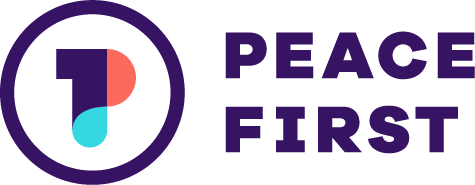Changing the Health Narrative: One Story at a Time
By Gaelle Matar, Senior Digital Marketing Manager, Peace First
‘She had no choice, if she wanted to keep her husband and save her marriage, she was bound to get him as many children as he desired up until the day she passed away while delivering her 15th child at only 33 years of age’, Sana tells me as her eyes fill with despair remembering her neighbor who was a victim of multiple forced pregnancies. Stepping into Wadi Khaled, a region bordering Lebanon and Syria, was a gut-wrenching experience for me- one that left me forever redefining my perspective on health inequality.
Upon reading this year’s theme for World Heath Day, “Health for All” set by the World Health Organization (WHO), the public health enthusiast in me cannot help but wonder: how many more Sanas must we lose before these annual April 7 themes translate into actual, tangible progress?
But the storyteller in me insists on asking: How can we tell stories that not only foster empathy and build solidarity but also inspire real action towards achieving the goal of: “Health for All”?
Having graduated with a bachelor’s in Pharmacy and currently pursuing my Master’s degree in Public Health, I am continuously asked why I choose to work in communications and storytelling.
My answer is simple: Stories help us connect across lines of difference and help us honor our shared humanity. Stories help us create, transform and re-invent. So, today, what stories do we need to tell to create a world where “Health for all” slogans are genuinely able to transform systemic inequities?

Gaelle during one of her field visits with AFAD.
We need to tell the story of poverty –
and honor the courage of those who endure it.
During one of my field visits with Assistance from a Distance — an initiative my friends and I co-founded to support people in Lebanon with livelihoods- I listened to a woman living in extreme poverty who has dedicated her whole life to the purpose of serving her child living with a disability. I listened to her tell me how she was due for urgent surgery for gallstones but could not afford it. I remember how she was gasping for breath between tears as she told me how the only treatment she could afford was a prayer. What kind of “health for all” are we striving towards when basic life-saving procedures are considered luxuries, or worse yet, miracles?
I listened to another woman shamefully admit that she brushed her teeth with salt as she had to choose between providing food for her family and prioritizing her own personal hygiene. In a world where we leave people with impossible choices to make every single day because we label them as “less fortunate”, the promise of ‘health for all” rings hollow.

Gaelle posing next to Miriam, a Peace First grantee, during the filming of the Changemaker Docuseries in Beirut, Lebanon.
We need to tell the story of abundance-
and dismiss the myth of limited resources.
During my job as a pharmacist, I met two siblings living with an incurable rare disease. Ideally, they should both have easy, and affordable access to their lifesaving medication for a disease that affects 1 in 200,000 people worldwide. But they don’t. Instead, they ration their powdered bottle of medication and risk sub-optimal dosing, seizures, and even death. This happens because they were born in a country with limited access to affordable medication. The narrative we’ve been fed is that we live in a world with scarce resources. But the question we need to ask is: Are the resources scarce or are they just unavailable for those who cannot afford them?

Gaelle posing with young people after their completition of the Peace First training.
We need to tell the story of young people-
every chance we get.
Working with Peace First means I get to meet young changemakers every day from all around the world. It means that, while I will forever carry with me the heart wrenching stories of the people I met during my work at AFAD and as a pharmacist, at Peace First, I am reminded of the power that exists in young people who are redefining what “Health for all” really means.
Young People like Fatima from Yemen, who is providing First Aid training and Awareness campaigns on infectious disease transmission for people living in areas without access to primary health care centers.
Young people like Grace from Nigeria who is advancing immunization coverage for vulnerable children by engaging their caregivers and community health workers.
Young people like Walter from Uganda, who strongly believes that every young girl should have access to sanitary pads and has started his initiative in Kayunga district in central Uganda to train adolescent girls and young women on how to make reusable sanitary towels.
The stories we need to tell today can be uncomfortable and bleak, but they can be lifesaving for people who share Sana’s story. What story are you going to tell today to create, transform and reinvent “Health for all”?

